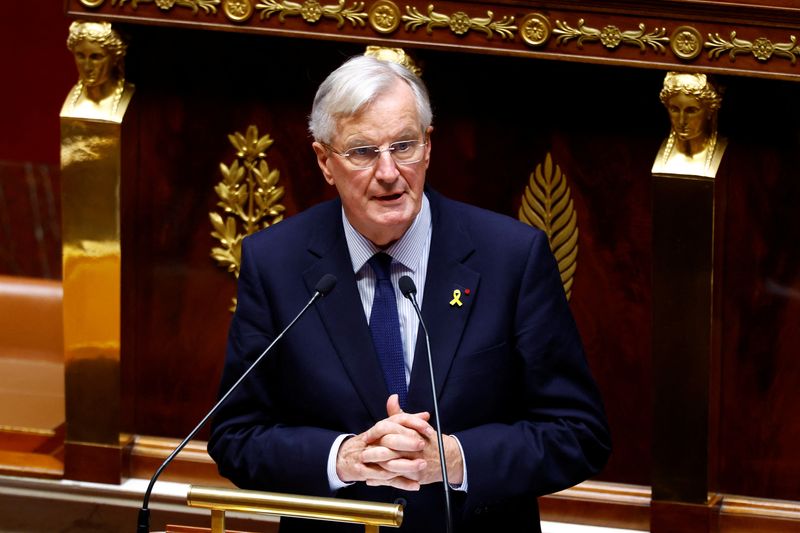By Tirthankar Mitra
French economy is between a rock and a hard place over its 2025 budget proposal aiming to implement 60 billion euros in spending cuts and tax hikes. It has sparked widespread debate across the political spectrum.
The criticism cutting across the political divide raised deep concerns about fairness, equity and potential long-term fallouts of these austerity measures. France is faced with the challenge of balancing economic with recovery of financial stability.
The government defends this financial belt tightening as an effort to managing a growing debt burden. The question whether the budget adjustment will disproportionately affect certain segments of the population lies at the heart of this criticism.
The middle class will be largely shielded from the worst of the cost cuts and tax hikes has been the assurance of the government led by Prime Minister Michael Barnier. Indeed much of the burden will fall on the wealthy and big corporations.
But that does not answer the question whether the most vulnerable will be spared. For there will be reduced tax breaks for the low-income workers and cuts in education spending. The budget has been accused of fiscal injustice. It is charged with exacerbating inequalities rather than reducing it.
The government has justified reducing the number of teachers owing to decline in number of students. It is viewed by one and all as a short sighted move which will weaken the educational foundation of the country thereby posing harm to future generations.
The budget has been termed to be fundamentally unfair by the left. It has been warned that the measures in the budget will hamper economic growth and deepen poverty. This would take place at a time when many are recovering from the fallout of the pandemic. The austerity measures in the budget have larger implications read fall outside
France is an important member of the European Union. It is one of the largest economies of the EU. Political and economic uncertainty surrounds this budget. And Eurozone will not be escaping the potential fallout.
Unintended consequences due to stalling economic recovery and worsening social conditions. May affect Euro economies. This is the last thing the EU economies seek from France. The need to address rising debt cannot be denied. The method by which it is to be achieved is likely to have serious repercussions.
The sacrifices demanded should be equitably distributed to minimise the fallout. The economic impact is to be carefully weighed before putting the austerity measures in place. There lies the compass in navigating the situation. Prime Minister Barnier has to take note of the feelings of low income group slowly. (IPA Service)




 Retired Lt. Gen Zamiruddin Shah Is Respected, He Should Not Have Given An Inciting Speech
Retired Lt. Gen Zamiruddin Shah Is Respected, He Should Not Have Given An Inciting Speech 